This article was medically reviewed by Vlad Gendelman, MD and by wikiHow staff writer, Sophia Latorre. Dr. Vlad Gendelman, MD is an Orthopaedic Surgery Specialist in Los Angeles, California. With over 15 years of experience, he specializes in general orthopaedic surgery, including orthopaedic trauma, sports injuries, and joint replacements. Dr. Gendelman holds a BS in Biology from the University of Southern California and received his Doctorate from the University of California at Irvine. He then completed his residency in Orthopedic Surgery at SUNY Downstate. Dr. Gendelman is board certified with the American Board of Orthopaedic Surgery and is a fellow of the American Academy of Orthopaedic Surgery. He is a member of the Los Angeles County Medical Association, the California Medical Association, California Orthopaedic Association, and the American Academy of Orthopaedic Surgery. Dr. Gendelman is a published author of multiple papers in the field of orthopaedic surgery.
There are 11 references cited in this article, which can be found at the bottom of the page.
wikiHow marks an article as reader-approved once it receives enough positive feedback. This article received 15 testimonials and 80% of readers who voted found it helpful, earning it our reader-approved status.
This article has been viewed 4,455,167 times.
Bruises, also known as contusions, are caused by broken blood vessels under the surface of your skin. Typically, bruises are caused by falling, bumping into things, or getting hit with an object like a ball. While bruises fade over time, there are a few things you can do to speed up the healing process.
Steps
Treating Bruises
-
1Ice the bruise. Putting an ice pack on the bruise will reduce swelling and help it heal more quickly.[1] Wrap an ice pack, resealable plastic bag filled with ice chips, or a bag of frozen veggies in a towel and apply it to the bruise for 10-20 minutes at a time. Repeat multiple times over the first 2 days.[2]
- Flexible gel-filled ice packs, specifically designed for injuries, are available from sports shops. Athletes usually keep a few on-hand to fight bruises.
-
2Elevate the area. Reduce blood flow to the bruised area with a little help from gravity in order to prevent blood from pooling and reduce discoloration. Aim to elevate the bruised part of your body a few inches above your heart.[3]
- For instance, if the bruise is on your leg, settle onto the couch and rest your leg on top of a few pillows.
- If your arm is bruised, try to prop it up on an armrest or a few pillows, so that it's at heart-level or above.
- If your torso is bruised, you might be out of luck. Focus on icing the area instead.
Advertisement -
3Wrap the bruise with a compression bandage. Compression bandages decrease the blood flow to the wrapped area, which can prevent blood from pooling at the site of the bruise. They also help reduce swelling and pain. Don’t wrap the bruise too tightly, though; simply wind an elastic bandage around the area.
- Only wrap the area for the first 1-2 days.
-
4Rest if possible. Working your muscles increases blood flow to that area, which won’t help a bruise heal. Call it a day and cool your jets, both to prevent further injury and give your bruise a chance to heal.[4]
- Hang out on the couch. Watch a movie, play a game, read a book, or just do something that doesn't require much physical activity.
- Head to bed early. Your body needs sleep to repair itself, so hit the hay as soon as you feel tired.
-
5
-
6Apply moist heat after 24 hours. After the first 24 hours or so, applying moist heat can help get rid of a bruise. Use a reusable heat pack or a warm washcloth rather than something like an electric blanket as wet heat is better for injuries than dry heat.[7]
- Apply the heat pack for a couple of minutes at a time, on and off for 1-2 days.
-
7Stay away from certain foods that can prolong bruising. Some foods and supplements, including St. John's Wort, omega 3 fatty acids, vitamin E, ginkgo, ginseng, alcohol, and garlic can all prolong bruising. Stay away from these foods while you heal.[8]
Trying Home Remedies
-
1Massage the area around the bruise. Don't massage directly around the bruise. Massage 1–2 centimeters (0.39–0.79 in) around the outside of the visible bruise, as they tend to be bigger than they look. Directly massaging a bruise can irritate it and make it worse.[9]
- Do this several times a day beginning the day after the bruising occurs. This will help your body's normal lymphatic process to clear it away.
- Keep in mind that the pressure shouldn't be painful. If the bruise is too painful to touch, hold off.
-
2Spend 10-15 minutes in the sun each day. Ultraviolet light breaks down bilirubin, which is the product of hemoglobin breakdown that causes the yellowish color of a bruise. If possible, expose the bruise to sunlight to accelerate the isomerization of the remaining bilirubin.
- Around 10-15 minutes of direct sunlight a day should be enough to help break up your bruise without leading to a sunburn. Apply sunscreen to the rest of your exposed skin when outdoors.
-
3Get more vitamin C. Vitamin C increases the amount of collagen around blood vessels, which can help get rid of bruising. Eat foods like oranges and dark, leafy greens to ensure you’re getting vitamin C in your diet.[10]
-
4Use arnica ointment or gel daily. Arnica is an herb that has long been recommended for bruises. It contains a compound that reduces inflammation and swelling. Pick up an ointment that contains arnica from a drugstore, and rub it over the bruise once or twice a day.[11]
- Do not apply arnica to a cut or an open wound.
-
5
-
6Spread vitamin K cream over the area. Vitamin K can help stop the bleeding as it causes your blood to clot. Visit a drugstore and pick up a vitamin K cream. Apply it as directed on the package to help get rid of the bruise.[13]
Seeking Medical Treatment
-
1Call emergency services if you feel extreme pressure around the bruise. If you feel pressure, severe pain, tenderness, muscle tightness, tingling, burning, weakness, or numbness in the area around the bruise, you may have compartment syndrome. Call emergency services so you can get to a hospital immediately.[14]
- Compartment syndrome occurs when there is swelling and/or bleeding in a muscle compartment. The pressure in the muscle compartment decreases the amount of blood flow to the area, which can cause nerve and muscle damage.
-
2Seek medical attention if you have a lump over the bruise. If a lump forms on top of the bruise, it could be a hematoma. Visit your healthcare provider as soon as possible, as the blood may need to be drained from the area.[15]
- A hematoma forms when blood pools under the surface of the skin, causing swelling.[16]
-
3Visit a healthcare provider if you think you have a fever or infection. If the skin is broken and the area around the bruise is red, hot, or oozing pus, it may indicate an infection. Similarly, if you have a fever, this could also be due to an infection. If you notice these symptoms, make an appointment to see your healthcare provider as soon as possible.[17]
Expert Q&A
-
QuestionDoes aspirin slow the healing of a bruise?
 Luba Lee, FNP-BC, MSLuba Lee, FNP-BC is a Board-Certified Family Nurse Practitioner (FNP) and educator in Tennessee with over a decade of clinical experience. Luba has certifications in Pediatric Advanced Life Support (PALS), Emergency Medicine, Advanced Cardiac Life Support (ACLS), Team Building, and Critical Care Nursing. She received her Master of Science in Nursing (MSN) from the University of Tennessee in 2006.
Luba Lee, FNP-BC, MSLuba Lee, FNP-BC is a Board-Certified Family Nurse Practitioner (FNP) and educator in Tennessee with over a decade of clinical experience. Luba has certifications in Pediatric Advanced Life Support (PALS), Emergency Medicine, Advanced Cardiac Life Support (ACLS), Team Building, and Critical Care Nursing. She received her Master of Science in Nursing (MSN) from the University of Tennessee in 2006.
Board-Certified Family Nurse Practitioner Aspirin has been shown to delay wound and bruise healing and therefore should be avoided.
Aspirin has been shown to delay wound and bruise healing and therefore should be avoided. -
QuestionHow do I get rid of bruises caused by needles?
 Luba Lee, FNP-BC, MSLuba Lee, FNP-BC is a Board-Certified Family Nurse Practitioner (FNP) and educator in Tennessee with over a decade of clinical experience. Luba has certifications in Pediatric Advanced Life Support (PALS), Emergency Medicine, Advanced Cardiac Life Support (ACLS), Team Building, and Critical Care Nursing. She received her Master of Science in Nursing (MSN) from the University of Tennessee in 2006.
Luba Lee, FNP-BC, MSLuba Lee, FNP-BC is a Board-Certified Family Nurse Practitioner (FNP) and educator in Tennessee with over a decade of clinical experience. Luba has certifications in Pediatric Advanced Life Support (PALS), Emergency Medicine, Advanced Cardiac Life Support (ACLS), Team Building, and Critical Care Nursing. She received her Master of Science in Nursing (MSN) from the University of Tennessee in 2006.
Board-Certified Family Nurse Practitioner If you had an aesthetic procedure you may want to follow the instructions of your health care provider. Bruising will usually resolve in healthy individuals within 10 to 14 days but it may persist for longer. Applying cold packs within the first 48 hours followed by heat can aid resolution. Using topical application of arnica gel, or vitamin K8, or bromelain can reduce the development of a bruise and may also increase the speed of resolution. Bromelain is an enzyme derived from pineapple that can be taken at a dose of 200 to 400 mg three times per day to speed healing and help the body clear metabolic waste following an injury. During the healing time, you may use a concealer to diminish the appearance of the bruises.
If you had an aesthetic procedure you may want to follow the instructions of your health care provider. Bruising will usually resolve in healthy individuals within 10 to 14 days but it may persist for longer. Applying cold packs within the first 48 hours followed by heat can aid resolution. Using topical application of arnica gel, or vitamin K8, or bromelain can reduce the development of a bruise and may also increase the speed of resolution. Bromelain is an enzyme derived from pineapple that can be taken at a dose of 200 to 400 mg three times per day to speed healing and help the body clear metabolic waste following an injury. During the healing time, you may use a concealer to diminish the appearance of the bruises.
Warnings
- When bruises appear suddenly without cause, you should seek medical advice from a healthcare professional.⧼thumbs_response⧽
- Consult a doctor before starting any new medications or stopping any current ones.⧼thumbs_response⧽
- Make sure you're not allergic to anything before trying any of the methods listed.⧼thumbs_response⧽
- Home remedies to treat bruising aren't medically tested and, like any home remedy, carry unknown risks.[18]⧼thumbs_response⧽
References
- ↑ Vlad Gendelman, MD. Board Certified Orthopaedic Surgeon. Expert Interview. 17 July 2020.
- ↑ https://www.mayoclinic.org/first-aid/first-aid-bruise/basics/art-20056663
- ↑ https://www.mayoclinic.org/first-aid/first-aid-bruise/basics/art-20056663
- ↑ https://www.mayoclinic.org/first-aid/first-aid-bruise/basics/art-20056663
- ↑ https://www.mayoclinic.org/first-aid/first-aid-bruise/basics/art-20056663
- ↑ https://www.mayoclinic.org/healthy-lifestyle/healthy-aging/in-depth/easy-bruising/art-20045762
- ↑ https://www.glamour.com/story/do-you-bruise-easily-heres-how
- ↑ https://www.ncbi.nlm.nih.gov/pmc/articles/PMC5367875/
- ↑ https://www.allaboutvision.com/conditions/black-eye.htm
- ↑ https://www.glamour.com/story/do-you-bruise-easily-heres-how
- ↑ https://www.glamour.com/story/do-you-bruise-easily-heres-how
- ↑ https://www.self.com/story/get-rid-of-bruise-faster
- ↑ https://www.self.com/story/get-rid-of-bruise-faster
- ↑ https://www.nhs.uk/conditions/compartment-syndrome/
- ↑ https://www.mayoclinic.org/first-aid/first-aid-bruise/basics/art-20056663
- ↑ https://www.medicinenet.com/script/main/art.asp?articlekey=3682
- ↑ https://kidshealth.org/en/teens/cuts.html
- ↑ http://www.scidev.net/en/news/who-issues-traditional-medicine-guidelines.html
About This Article
The fastest way to get rid of an older older bruise is to massage the area around the bruise, but avoid touching the bruise itself. To get rid of a new bruise, ice the area immediately and elevate it to reduce discoloration. Take an over-the-counter painkiller like ibuprofen for pain relief, but avoid aspirin which can make your bruise worse. Keep reading for more ways you can help get rid of bruises fast as well as advice on when you should see your doctor!
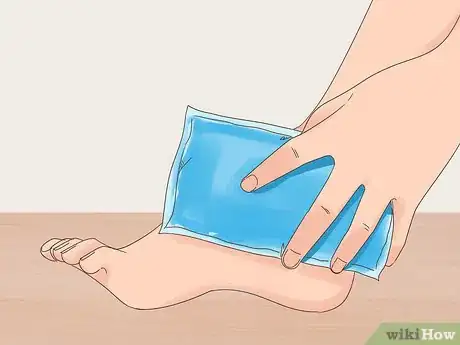

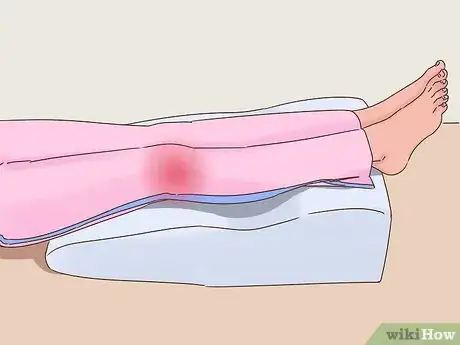
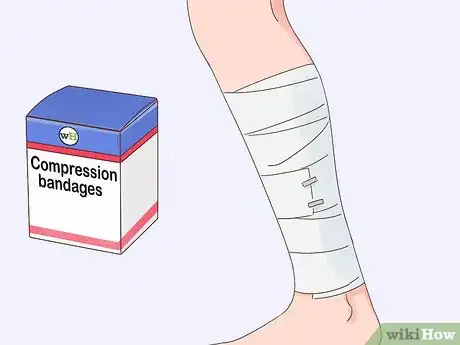

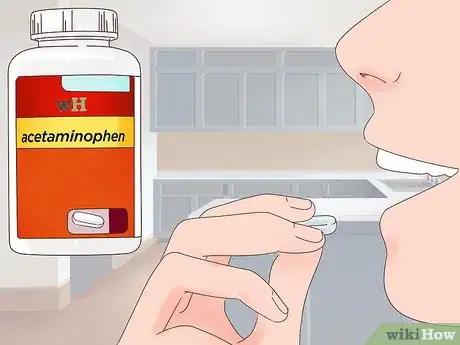
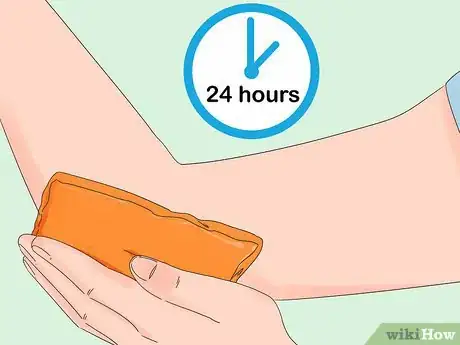
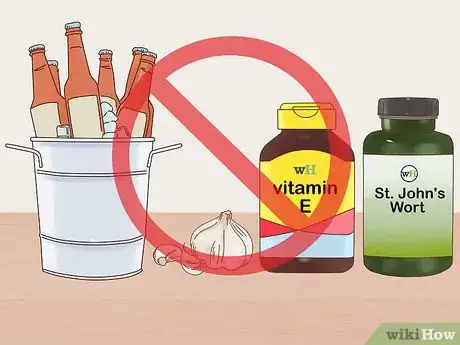
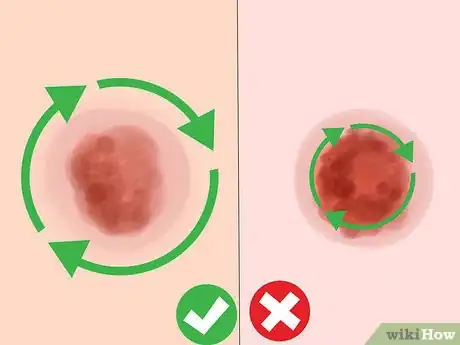


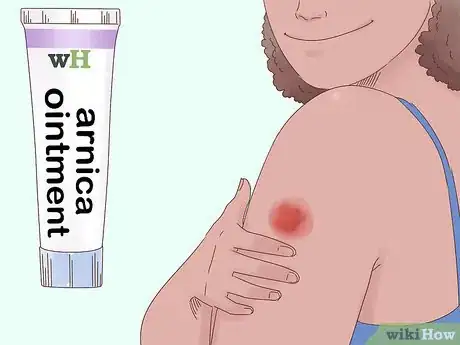

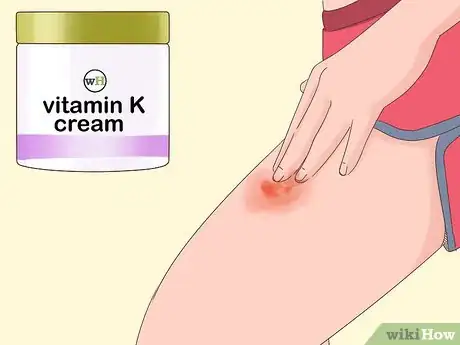
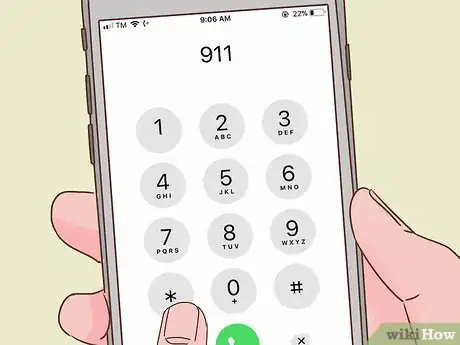
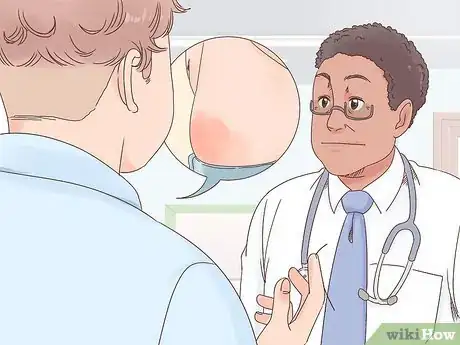


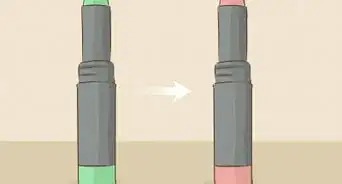

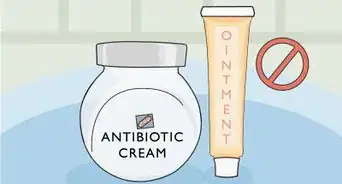


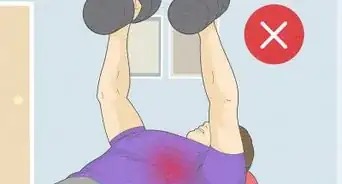

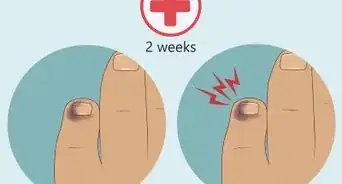

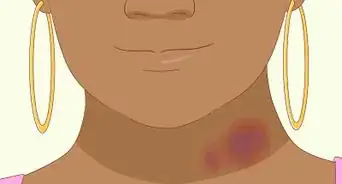

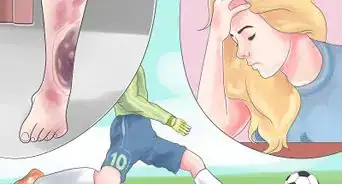
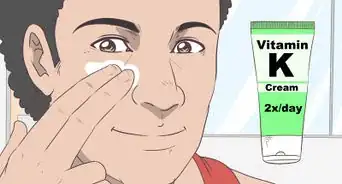









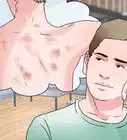






































Medical Disclaimer
The content of this article is not intended to be a substitute for professional medical advice, examination, diagnosis, or treatment. You should always contact your doctor or other qualified healthcare professional before starting, changing, or stopping any kind of health treatment.
Read More...